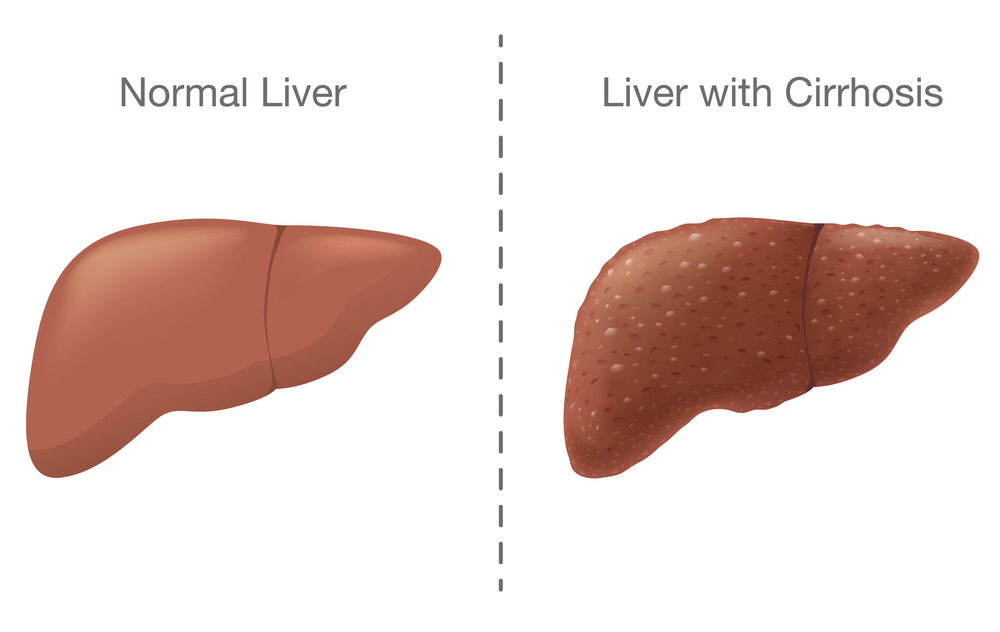When patients come to us for liver cancer outpatient care in New York, many of them ask whether it is safe to continue drinking alcohol. The fact is that alcohol is highly toxic to liver cells, and consuming it can accelerate damage to the liver. Once the therapy is finished, patients can resume drinking but very moderately, whereby one glass of wine every other day is unlikely to cause any significant damage. However, prudence is still recommended, and we encourage patients to check with their treating physicians about the resumption of alcohol consumption.
What Is Liver Cancer?
Primary liver cancer is a type of cancer that originates in the liver. There are a number of risk factors for liver cancer, including chronic alcohol consumption. As already explained, alcohol is extremely toxic to liver cells and, over time, is responsible for a chronic inflammatory process called cirrhosis which ultimately may lead to liver cancer. This is why the consumption of alcohol should always be in moderation.
As with other cancers, liver cancer can be better managed if caught early. If you notice any of the following symptoms, see a healthcare professional as soon as possible:
- Sudden and unexpected weight loss
- Lack of appetite, where you feel full even after a small meal
- Stomach pain and swelling
- Nausea and vomiting
- Fatigue
- Yellowing of the skin or the whites of your eyes (jaundice)
Besides reducing your alcohol consumption, it is essential to get regular exercise and eat a balanced diet to maintain optimal liver health. This also helps lower the risk of cirrhosis and fatty liver disease, among other serious health issues such as stroke and heart disease.
Liver Cancer and Its Relation to Alcohol Use
Excessive alcohol use can cause liver cirrhosis, a chronic inflammation of the liver where scar tissue buildup prevents proper liver function.
Most people with liver cirrhosis who continue to drink heavily also have a higher risk of developing liver cancer and other complications.
So, why is drinking alcohol with liver cancer a bad idea? Below, we will explain how drinking affects the liver and why patients with liver cancer should avoid it.
Drinking Affects the Liver’s Regeneration Properties
The liver is a remarkably resilient organ and often heals itself from minor damage. However, if the liver suffers chronic damage resulting in cirrhosis, it cannot perform this healing process efficiently. Although the liver’s regenerative nodules may try to regrow, the cirrhosis causes sheets of scar tissue to separate the nodules. Liver cancer may then develop in the nodules, resulting in uncontained growth.
Alcohol Results In Accumulation of Toxins in the Liver
Even before cirrhosis takes hold, the metabolism of excessive alcohol in the liver could cause a buildup of toxic substances, including free radicals. The toxins may then contribute to a range of health complications, including liver cancer.
Limited Treatment Options for Liver Cancer
Another risk of drinking alcohol for a person with liver cancer is that their treatment options become increasingly limited. For instance, surgical procedures that eliminate cancerous tissue in the liver are difficult to perform if too little normal tissue remains.
For individuals who had cirrhosis before they were diagnosed with liver cancer, continuing to drink can exacerbate their condition. Additionally, once advanced cirrhosis sets in, some localized therapies may not work as effectively.
Similarly, patients who drink may reduce the effectiveness of oral drugs that block tumor signals and blood vessels that cancer cells need to grow. Additionally, advanced cirrhosis due to alcohol use could eliminate the possibility of using immunotherapy medication to boost the body’s defenses against cancer.
Getting Help If You Suffer From Liver Cancer
At USA Oncology Centers, our goal is to provide you with the best options for liver cancer treatment in NY that will maximize your chance of survival and improve your quality of life. At each step, we work with you to establish the best approach for treatment, considering everything from the stage and type of liver cancer you have to your overall personal and health requirements.
Our highly trained, industry-leading doctors are skilled in providing both primary and secondary liver cancer treatments. These minimally invasive treatments may include the following:
- Radioembolization (Y-90 SIRT) for both primary and secondary liver cancers
- Transarterial chemoembolization
- Ablation therapy
At USA Oncology Centers, our patients always come first. For more information, call us at 855.870.4747 or schedule an appointment with one of our interventional oncologists.
Disclaimer+++
The information in blog articles is for information purposes only. The content is not intended to be a substitute for professional medical advice, diagnosis, or treatment. Please always consult a licensed healthcare professional for advice on any specific medical condition or any changes to your healthcare decisions.

